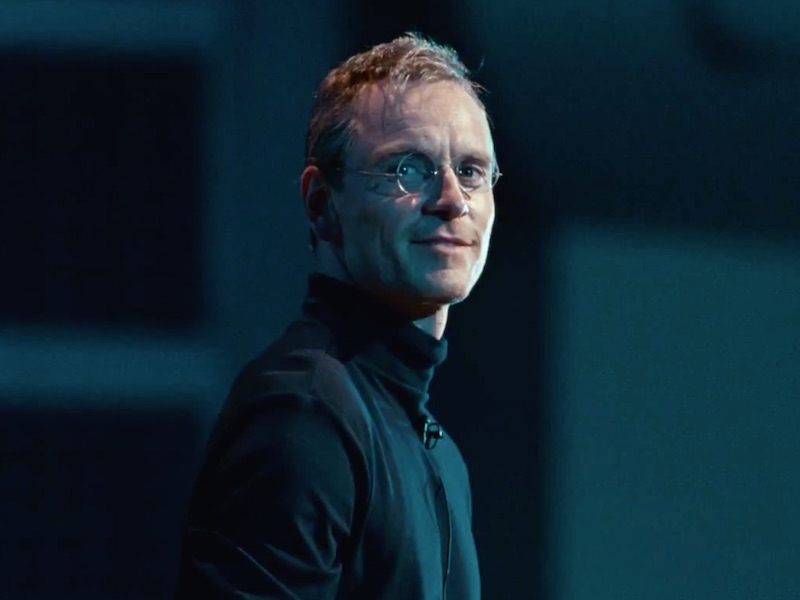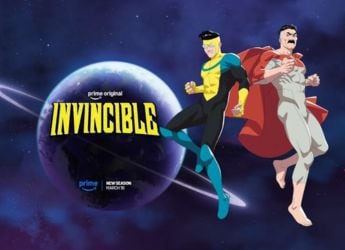- Home
- Internet
- Internet News
- Steve Jobs Wasn't Pushed Out of Apple, Says Wozniak
Steve Jobs Wasn't Pushed Out of Apple, Says Wozniak

It's long been an established part of the mythos of Apple that its founder Steve Jobs was pushed out of the company in 1985 by John Sculley, the former Pepsi executive whom Jobs had recruited as CEO.
But Sculley, who is now a co-founder at Obi Mobiles, has said in interviews that he never fired Jobs, and this was something that Apple co-founder Steve Wozniak also pointed out in a Facebook exchange with the American blogger and technology evangelist Robert Scoble. This comment came up in a discussion about the upcoming Steve Jobs biopic, and a new documentary about the Apple founder.
The upcoming Aaron Sorkin penned Steve Jobs biopic, directed by Danny Boyle and based on the biography by Walter Isaacson, starring Michael Fassbender as Jobs, is going to be released next month. Wozniak, who has seen a rough cut of the film, says it actually captures the spirit of Apple, and he told Deadline Hollywood, "I felt like I was actually watching him."
On his wall, Scoble linked to another film about Jobs, a documentary this time, called Steve Jobs: The Man in the Machine. The film is supposed to capture the "dark side" of Jobs, and according to a report Apple senior executive Eddie Cue called the film "an inaccurate and mean-spirited view of my friend" and "not a reflection of the Steve I knew."
Scoble's link drew comments from Sculley, Wozniak, and Salesforce CEO Marc Benioff. "Steve is going to be remembered for how these films and book illuminate brilliantly his darkest self, and how they completely leave out his greatest gift," wrote Benioff.
Wozniak pointed out in his comment that Sculley himself agreed with Jobs' vision for the Macintosh, and wrote, "Steve Jobs wasn't pushed out of the company. He left." The comments that Wozniak left were critical of Jobs, and dismissive of the cult of personality that has developed around the late Apple CEO.
"I supported him in his belief that he was made to create computers. But up until then he'd only had failures at creation. He was great at productizing and marketing the Apple II and the revenues financed the failures Apple III, LISA, Macintosh and NeXT," wrote Wozniak. "This is not shown in the movie. After the Macintosh failure it's fair to assume that Jobs' left out of his feeling of greatness, and embarrassment about not having achieved it. That is not shown either."
"Jobs would get into discussions but he was almost always the smartest person with the most thought out arguments and reasoning. The LISA cost too much when Jobs thought we could pull off some Woz Magic and make it cost very little," he added. "That's only because Steve didn't know computers and what it would take to make the right good machine. So it wasn't that things didn't go his way other than that his idea hadn't panned out. In that case, he blamed the LISA team. Never himself. The right move of an executive would have been to keep the LISA secret, inside, until RAM prices dropped 10x, after maybe 5 years or so. But Steve felt it was the fault of lousy engineers who couldn't find shortcuts."
However, he had a lot of praise for the upcoming Sorkin movie, saying that even though the story is debatable, and needs some negatives to be added for accuracy, the film is so well presented that you'll enjoy watching it. "What is great about this movie is that it really depicts a significant part of Jobs and his personality in very believable way," wrote Wozniak. "The Jobs in this movie seems like the real Jobs in many ways."
Disclosure: John Sculley is an investor in NDTV's Gadgets 360.
Catch the latest from the Consumer Electronics Show on Gadgets 360, at our CES 2026 hub.
Related Stories
- Samsung Galaxy Unpacked 2025
- ChatGPT
- Redmi Note 14 Pro+
- iPhone 16
- Apple Vision Pro
- Oneplus 12
- OnePlus Nord CE 3 Lite 5G
- iPhone 13
- Xiaomi 14 Pro
- Oppo Find N3
- Tecno Spark Go (2023)
- Realme V30
- Best Phones Under 25000
- Samsung Galaxy S24 Series
- Cryptocurrency
- iQoo 12
- Samsung Galaxy S24 Ultra
- Giottus
- Samsung Galaxy Z Flip 5
- Apple 'Scary Fast'
- Housefull 5
- GoPro Hero 12 Black Review
- Invincible Season 2
- JioGlass
- HD Ready TV
- Laptop Under 50000
- Smartwatch Under 10000
- Latest Mobile Phones
- Compare Phones
- Realme Neo 8
- OPPO Reno 15 FS
- Red Magic 11 Air
- Honor Magic 8 RSR Porsche Design
- Honor Magic 8 Pro Air
- Infinix Note Edge
- Lava Blaze Duo 3
- Tecno Spark Go 3
- Acer Chromebook 311 (2026)
- Acer Chromebook Spin 311
- Lenovo Idea Tab Plus
- Realme Pad 3
- Moto Watch
- Garmin Quatix 8 Pro
- Haier H5E Series
- Acerpure Nitro Z Series 100-inch QLED TV
- Asus ROG Ally
- Nintendo Switch Lite
- Haier 1.6 Ton 5 Star Inverter Split AC (HSU19G-MZAID5BN-INV)
- Haier 1.6 Ton 5 Star Inverter Split AC (HSU19G-MZAIM5BN-INV)






![[Sponsored] Haier C90 OLED TV | Dolby Vision IQ, 144Hz OLED and Google TV in Action](https://www.gadgets360.com/static/mobile/images/spacer.png)









